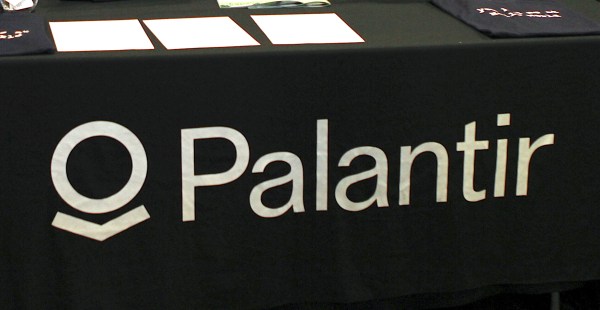Inside Palantir’s work with the CDC, HHS to synthesize COVID-19 data

Big data analytics company Palantir is working with the Department of Health and Human Services and the Centers for Disease Control and Prevention to synthesize vast sets of disparate health data to understand how the novel coronavirus is spreading, the company confirmed to FedScoop.
Palantir said it is not involved in the harvesting or storage of health data but is working with the CDC and HHS to provide its Foundry suite of tools to analyze the agencies’ COVID-19 data. The set of data tools has the power to “clean” and “harmonize” the information flowing in from local hospitals, states and other sources related to the virus, according to a source with knowledge of the arrangement between the company and the government.
A Palantir spokeswoman told FedScoop in an email that in the U.S. the company is “continuing to work closely with our partners at HHS, including CDC, and across the government to provide our technology to ensure agencies have the most comprehensive, accurate and timely view of information as the COVID-19 response effort evolves.”
Palantir’s past work with federal agencies, like U.S. Immigration and Customs Enforcement, has raised concerns with privacy advocates. But the company was quick to emphasize that it is not collecting data itself around the coronavirus — it’s merely providing tools to agencies that have the authority to handle sensitive health data.
“We are not mining the data, we are giving them the platform, analytical tools, and supporting data pipelines to enable them to do their own modeling,” Courtney Bowman, lead global privacy and civil liberties engineer for Palantir, said in a statement.
The chief challenge of tracking the spread of coronavirus in the U.S. is the lack of a central clearinghouse of public health data that can inform policymakers on the virus’s movement and any trends. The tools that Palantir is providing aim to help solve the challenge of working in a highly “federated” health care structure, said one source.
Palantir has been working with health agencies for years, but intensive work on COVID-19 response only ramped up within the last two weeks, the source said. Past work has centered on similar data challenges but on dramatically smaller scales.
Data collection and analysis on the spread of food-borne illness, for example, are not only different in scale but different in nature. The CDC and HHS not only need to analyze data to track where the virus has spread — as with food-borne illnesses — but they also need to use that data to optimize response efforts. For instance, the CDC needs to know how many masks, tests, ventilators and other tools need to be sent to impacted cities, and use data to predict how what communities will need as the pandemic rages on for the foreseeable future.
The CDC did not respond to requests for comment.
Members of Congress have also acknowledged the importance of integrating big data sets to fight the spread of the virus. Rep. Ami Bera, D-Calif., suggested distributing personal thermometers to “every American” that would be able to collect data and track fevers, one of the major symptoms of COVID-19.
“That is going to a big data set as well, and that could… give us information on how to move forward,” Bera said during a Stanford virtual conference on artificial intelligence and data’s role in stopping the spread of the virus.
Palantir has recently won major awards to help modernize the Army‘s and Navy‘s data systems. It also recently celebrated achieving a FedRAMP authorization to help its business with civilian federal agencies.




